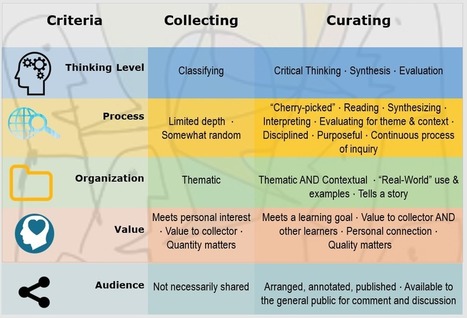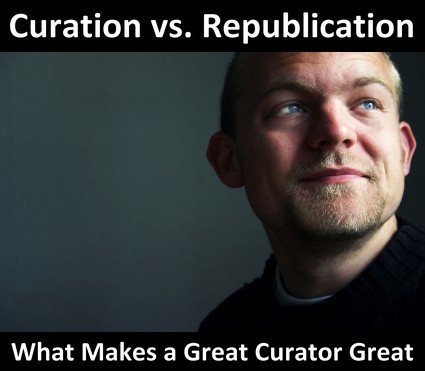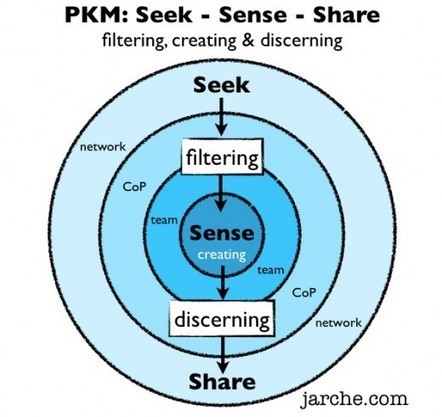In the summer of 2012, I began an exploration of the concept of Content Curation, and what this meant for teachers and students. Little did I know at the time that my journey would involve curating…about curating. Given the task of providing professional development for teachers to curate resources for backwards-designed units, I started researching…
Research and publish the best content.
Get Started for FREE
Sign up with Facebook Sign up with X
I don't have a Facebook or a X account
Already have an account: Login
 Your new post is loading... Your new post is loading...
 Your new post is loading... Your new post is loading...

Beth Kanter's comment,
November 6, 2011 11:16 AM
Robin: Your point about using metrics and data .. I think what you are saying is that we should be "data-informed" - not data driven. That we don't just look at data to make decisions- but we bring our whole wisdom and knowledge and point of view to it .. http://www.bethkanter.org/curiosity-driven/

Robin Good's comment,
November 6, 2011 11:44 AM
Exactly Beth!
I couldn't have said better. Thanks for clarifying this further. 
Duncan Cole's curator insight,
March 11, 2017 2:59 PM
If you are looking for some good advice and insight into how to develop into a great content curator, this is a great article from a few years ago from Robin Good. The additional insight from other curators adds another dimension, and I would suggest looking at this in some detail. It is clearly more effort to curate well, but then high quality work usually does.
|

Terry Elliott's comment,
October 5, 2012 11:32 AM
I really am drawn by the graphic and the abstraction, discernment, is full of resonants, aftertones, undertones, and tones yet to be heard but imminent. Discernment changes daily. I think this is a reminder that we need to approach curation with a 'prayer' of focus. For example, in curation-ed I need to invoke a hope to find words, minds, and text that will help us all seek/filter/create sense/discern/and share.
|












